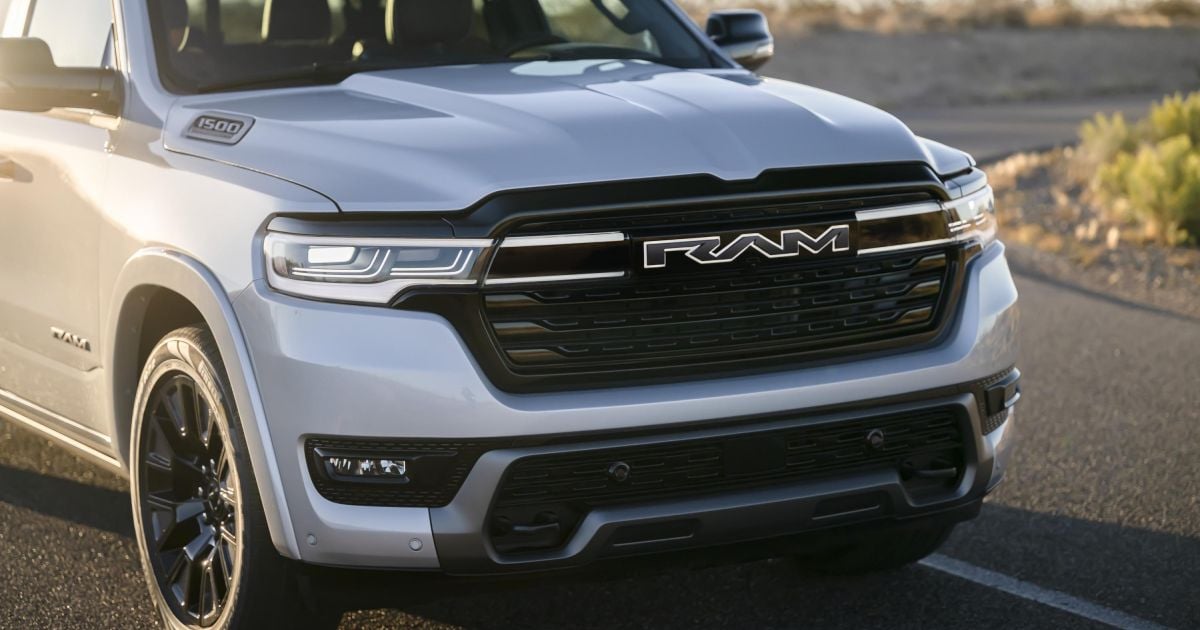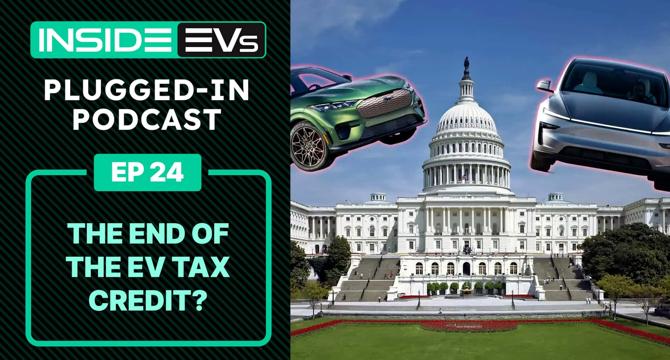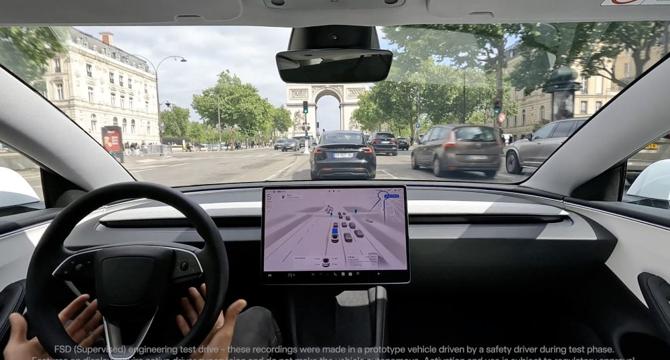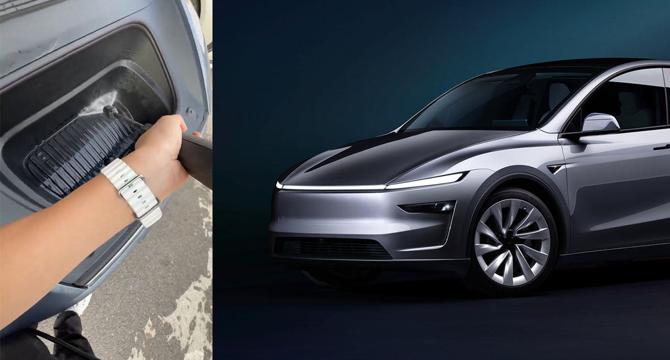Electric Vehicles News
Chargedevs
288

Pando Electric partners with Associa to install EV charging at multifamily developments
- Pando Electric partners with Associa to provide EV charging solutions for managed communities in the US.
- The first project involves installing 48 EV charging outlets at 1700 De Anza in Northern California, with more properties planned.
- Pando Electric's approach includes installing high-power smart outlets to reduce costs and maintenance while offering advanced features.
- Pando Electric CEO Aaron Li emphasizes a mission to make EV adoption simple and affordable, with Associa ensuring access to convenient EV charging for residents.
Read Full Article
17 Likes
Insideevs
422

Image Credit: Insideevs
‘Arrogance': How U.S. Battery Inventions Supercharged China’s EVs
- The U.S. was instrumental in inventing rechargeable lithium-ion batteries, including nickel-manganese-cobalt (NMC) cathodes and lithium-iron-phosphate (LFP) batteries.
- China capitalized on these U.S. breakthroughs, scaling them while the U.S. lacked foresight, leading to China's dominance in EV batteries.
- The LFP battery, cheaper to produce than NMC batteries, offers better thermal stability and consistent performance, driving the global EV revolution.
- China now leads in installed battery capacity, with U.S. automakers like Tesla and Ford using LFP but lagging behind in innovation and scale.
- Nissan CEO Ivan Espinosa is implementing cost-cutting measures by slashing jobs and factories to revive the struggling company.
- Tesla is pressuring battery maker Panasonic to increase U.S. battery production to qualify for tax credits amidst the Trump administration's tariffs.
- Nissan's upcoming new Leaf, positioned as an efficient SUV with Tesla-style charging port, aims to revamp the automaker's EV strategy and regain market share.
- While U.S. battery manufacturing and EV sales are growing, the article highlights the need for disruptive innovations to stay competitive globally.
- The U.S. risks falling further behind in EV technology and battery production due to lack of long-term planning and strategic investment.
- China's dominance in EV batteries, driven by U.S. innovations, highlights the importance of sustained investment in research and development.
Read Full Article
25 Likes
CarExpert
323

Image Credit: CarExpert
Ram confirms another delay to electric, range-extender utes
- The launch of the all-electric Ram 1500 REV ute and the range-extender Ram 1500 Ramcharger have been delayed due to quality issues and slowing consumer demand for full-size electric pickup trucks.
- The Ramcharger won't be launched until the first quarter of 2026 at the earliest, while the REV won't be available until the third quarter of 2027.
- The market is experiencing slower consumer demand for electric trucks, as evidenced by lower sales targets for models like the Ford F-150 Lightning.
- The Ram 1500 REV will only offer a standard-range variant as the long-range variant with a 229kWh battery has been cancelled.
Read Full Article
19 Likes
TechCrunch
30

Image Credit: TechCrunch
Mystery investor’s attempt to stop Canoo asset sale shot down by judge
- Judge Brendan Linehan Shannon blocked the attempt by a mysterious financier named Charles Garson to disrupt the sale of Canoo's assets in the EV startup's bankruptcy case.
- Charles Garson, who missed the bid deadline, lacked standing to request the sale to Canoo's CEO be vacated as he did not formally submit a bid on time or clarify the source of funding.
- Harbinger Motors, a commercial electric trucking startup, also objected to the asset sale but was denied by the judge, with the company appealing the decision.
- The judge ruled swiftly against Garson, stating he lacked standing to argue his motion to vacate the sale as he did not meet the necessary requirements to participate in the sale process.
Read Full Article
1 Like
Insideevs
38

Image Credit: Insideevs
This Dodge Charger Daytona Vs Tesla Model 3 Race Isn't Even Close
- The Dodge Charger Daytona Scat Pack, touted as the world's first electric muscle car, faced off against the Tesla Model 3 Performance in a race.
- Despite the Charger Daytona's 670 horsepower and 627 pound-feet of torque compared to the Tesla's 510 hp and 546 lb-ft, the Model 3 outperformed in acceleration and speed due to its lighter weight.
- The Tesla Model 3 Performance, being around 2,000 pounds lighter than the Charger Daytona, excelled in categories like zero-to-60 mph sprint and quarter-mile time.
- While the Charger Daytona showcased better performance in corners, the Tesla Model 3's price advantage, costing $56,630 compared to the Charger's $85,965, was notable with its four-door design.
Read Full Article
2 Likes
Insider
219

Image Credit: Insider
EV sales are surging globally — but growth in North America is lagging
- Global EV sales surged 29% in the first four months of the year, with China and Europe leading the growth.
- North America, however, only saw a 5% increase in EV sales during the same period.
- China's 35% sales boost was attributed to trade-in schemes while EV sales in Europe also saw a significant rise.
- In North America, Tesla remains the largest EV brand despite a decrease in market share from 51% to 44% over the past year.
Read Full Article
13 Likes
TechCrunch
73

Image Credit: TechCrunch
Chipotle president Jack Hartung joins Tesla’s board ahead of Tesla Diner launch
- Chipotle executive Jack Hartung has been appointed to Tesla's board of directors as Tesla works on finishing its retro-futuristic diner and charging station in Los Angeles.
- Hartung brings over two decades of experience from Chipotle, overseeing finance, accounting, supply chain, strategy, safety, and asset protection for the company's 3,700+ restaurants.
- Prior to Chipotle, Hartung spent almost 20 years at McDonald's as VP and CFO of the partner brands group.
- Hartung will start his duties on the Tesla board, including on the audit committee, effective June 1, and has waived cash and equity compensation.
Read Full Article
4 Likes
Insideevs
306

Image Credit: Insideevs
What The EV Tax Credit Repeal Really Means
- House Republicans have proposed to end the electric-vehicle tax credit for used EVs and electric-car leases by the end of 2022, while the main EV tax credit would be reduced until the end of 2026.
- The changes could lead to lower EV sales, more expensive cars, and a less vibrant American manufacturing sector.
- General Motors' new lithium manganese rich batteries are discussed, potentially being the next big development in battery technology for the West.
- Toyota has announced three new EV models, including the bZ Woodland, sparking debates on the model names' quality.
Read Full Article
18 Likes
Teslarati
262

Image Credit: Teslarati
Tesla posts FSD demonstrations in Australia and France
- Tesla showcases Full Self-Driving (FSD) system through demonstrations in Australia and France.
- Videos posted on social media platform X feature FSD operating in Melbourne and navigating France's Arc de Triomphe.
- Tesla is set to introduce a robotaxi service using FSD Unsupervised in Austin, Texas next month.
- Company tests show Model Y units driving driverless and Cybertrucks navigating a Boring Company tunnel in preparation for the robotaxi service.
Read Full Article
15 Likes
Insider
142

Image Credit: Insider
Tesla is adding Chipotle's president to its board
- Jack Hartung, Chipotle's former CFO and president, is set to join Tesla's board on June 1st.
- Hartung served as CFO of Chipotle for 22 years before becoming president last year.
- His appointment comes amidst scrutiny surrounding Tesla's board and reports of a search for a new CEO to replace Elon Musk.
- Hartung will also be a member of Tesla's board's audit committee, making him the ninth member of the board.
Read Full Article
8 Likes
Pv-Magazine
224

Electric cars and heat pumps can help avoid 110 hours of negative electricity prices annually
- Enervis study commissioned by Green Planet Energy shows the potential for reducing CO2 emissions and avoiding peak times by using electric cars and heat pumps with intelligent control.
- Operational control can shift energy consumption to midday, reducing negative electricity prices by an average of 110 hours/year between 2025-2035.
- Benefits include decreasing energy losses, reducing reliance on natural gas power plants, and lowering base load and peak electricity prices.
- Consumption flexibility could save 0.7 million tons of CO2 annually by minimizing gas-fired power plant usage, as per the study.
Read Full Article
13 Likes
Teslarati
86

Image Credit: Teslarati
United Airlines debuts Starlink Wi-Fi on Detroit flight
- United Airlines introduced Starlink Wi-Fi on its first passenger flight to Detroit, offering high-speed internet utilizing SpaceX's satellite technology.
- The service leverages Starlink's 7,000+ low Earth orbit (LEO) satellites to provide broadband globally, with United planning to expand it to its regional and mainline fleet.
- Testers have praised Starlink's Wi-Fi speed, with download speeds of 217 Mbps and upload speeds of 26.8 Mbps, making it suitable for long flights.
- SpaceX sees Starlink as not just for aviation but also as a potential GPS alternative, offering Positioning, Navigation, and Timing (PNT) services, promising broad applications for the technology.
Read Full Article
5 Likes
Insideevs
293

Image Credit: Insideevs
The Renault 4 Savane 4x4 Concept Is Europe’s Answer To The Rivian R3X
- Renault introduces the Renault 4 Savane 4x4 concept, showcasing a dual-motor powertrain and appealing design.
- The concept vehicle utilizes Renault's small EV platform to incorporate an all-wheel drive setup, emphasizing its AWD capabilities.
- Inspired by nostalgia, the Renault 4 Savane 4x4 concept offers wider tracks, redesigned bumpers, and a higher ground clearance for an enhanced exterior appearance.
- Featuring unique interior elements like Deep Brown textile fabric seats with quilted patterns and a backlit 4Savane logo, the concept caters to modern-day explorers.
Read Full Article
17 Likes
Insideevs
12

Image Credit: Insideevs
The Tesla Cybertruck Is No Longer The Best-Selling EV Truck In America
- The Tesla Cybertruck has been overtaken by the Ford F-150 Lightning as the best-selling electric pickup truck in the United States in the first quarter of the year.
- Tesla introduced a cheaper Cybertruck without all-wheel drive, but the exact vehicle sales numbers are not disclosed individually.
- Sales data shows a decline in Cybertruck sales over the past two quarters, with 7,126 registrations in Q1 2025 compared to 6,404 units sold according to Cox Automotive.
- Carmakers are facing challenges with electric trucks due to demanding use cases, heavy batteries, and the need to meet diverse consumer needs, despite the overall increase in EV sales.
Read Full Article
Like
Evannex
30

Image Credit: Evannex
Look how easy it is to wash the new Tesla Model Y frunk after use (video)
- Tesla showcased a hidden feature of the front trunk (frunk) in the new 2026 Model Y Juniper, which includes a drain plug for easy cleaning.
- The drain plug allows water and liquids to be flushed out easily, as demonstrated in an official Tesla video using a pressure washer.
- Tesla's efficient use of space in EVs led to the innovative 'frunk' concept, with the new Model Y Juniper having the added convenience of a drain plug.
- Owners are considering alternative uses for the frunk, such as using it for cold storage during trips or even storing live fish, thanks to the easy drainability.
Read Full Article
1 Like
For uninterrupted reading, download the app